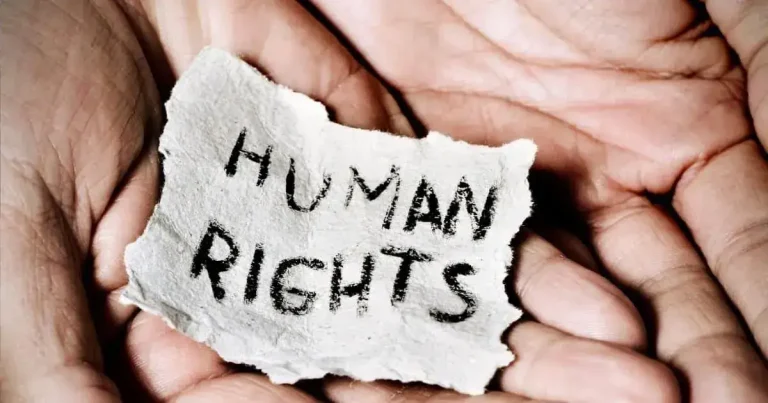What Are the Pros and Cons of a Unitary Government?
The federal system of government in the United States is in place. The state-level local governments and the federal government both exist. A unitary government is one in which a single central government has total authority over all of the subdivisions, in contrast to a federal government, which has some power at the federal level and all other power contained in state laws. In actuality, it is the most prevalent type of government worldwide. What are the benefits and drawbacks of a unitary government, then? Pros Cons Unitary Government.
166 of the 193 member states of the United Nations currently function as unitary governments. Living under a unitary government has its benefits, such as fewer citizens being confused about the political system, quicker and simpler emergency response times, and a simpler legal system for the government.
In contrast, residents of a unitary government may discover that their demands are frequently disregarded, that there is a chance of power abuse, and that manipulation is simple when there is no accountability. Let’s examine the benefits and drawbacks of a unitary government in more detail.
What Are the Pros Cons Unitary Government?

It’s less confusing to the citizens of the country.
In a unitary government, there is a single, well-defined body of laws that govern the entire nation. Individuals in the US are governed by various laws. There are state-specific laws as well as federal laws that apply to the entire nation. Therefore, a person who lives in one state and is familiar with its laws may travel to another state and find themselves subject to entirely different legal systems.
For example, state-by-state variations in gun control laws can be confusing. In one state, carrying a concealed weapon may be permitted, but in another, it may be illegal. To ensure that they do not break any laws, citizens must be aware of them.
The government is much smaller.
The entire nation is governed by a single, centralized government. Rather than having a separate governing body for every state or province, the central governing body dispatches a delegate to manage the requirements of every community. When there is just one person in charge and they make all the decisions, things go much more smoothly. It’s clear to everyone what their responsibilities are, and nobody questions who is in charge of what.
Emergency response time is much quicker.
Decisions about what to do in an emergency are made more quickly because there is only one central governing body. In the event of a natural disaster, resource distribution can happen much more quickly without going through multiple chains of command. That also holds in the event of a conflict. Leaders can act more quickly because there is only one centralized government in charge.
It is generally less expensive to run a unitary government.
There is only one governing body, which results in significantly lower administrative expenses. If administrative expenses are reduced, the savings could be passed on to the public in the form of lower taxes without compromising services. Those who might not be able to work due to a disability also receive these benefits. Thus, in certain cases, the government and the people both profit monetarily.
The structure of the legal system is less complex.
In a unitary government system, there are no state and local governments that might have laws to the contrary. There are county, state, and federal laws in the United States. There are various court systems, and the judicial system must intervene when differences emerge between them. The Supreme Court will then have to decide which laws apply in the particular case. There is only one governing body in a unitary system, so there can never be disagreements about which law is more important than another. Such a unitary system reduces the expense of protracted court proceedings.
Though there is only one governing body, the voice of the people is still heard.
Similar to a federated state, residents can voice their concerns to the governing body’s designated delegate about local issues, who will listen and then bring these issues up with the body. Then, the governing body can make sure that the issues at hand receive the proper attention.
With a unitary government, everyone works for a common goal.
Rather than harbouring conflicting allegiances to the federal and state governments, everyone cooperates for the greater good. In contrast to a divided political system, like the one that exists in the US between the Democrats and Republicans, there is a sense of unity.
What Are the Cons of a Unitary Government?

It can sometimes turn into a dictatorship with only one person in charge.
When there is only one decision-maker for the entire nation, there is no accountability, and things can spiral out of control. The ruling class, which is trying to control every aspect of the government, has the people at its mercy. Whether a leader is an effective, informed leader a military strategist or a financial specialist, it is unlikely that one person can handle all facets of leading a nation.
It is very easy for manipulation to occur.
When one person has authority, they may occasionally make decisions that could harm the people they control to satisfy their wants and needs. There is no one to hold the powerful individual responsible for their actions if they choose to pursue goals for their benefit. There are no laws in place to prevent those in positions of power from acting in a way that prioritizes their interests over those of the people.
It is harder for a leader to get away with pursuing opportunities for personal gain in the United States because every governing body has checks and balances.

Individual states and provinces cannot make their own decisions for their locale.
In the United States, for instance, every state has its tax laws, and funds can be allocated to the areas that most need them. In each municipality, the local government makes the ultimate decision. Every municipality and province under a centralized government is subject to the laws of the ruling body, which might not always be in their best interests.
There is the possibility for a slower local response time to emergencies.
When an emergency arises, like the threat of an invasion, a unitary government can respond quickly. There is only one person who can issue the order, and there are no other ways to send the armed forces in reaction to the threat.
Local emergencies, on the other hand, can take considerably longer because a delegate must be sent out to discuss community needs and then report back to the governing body. This takes a lot longer than in a federal nation where the local government can act quickly to distribute resources and make decisions in the event of a hurricane or tornado that may force people from their homes.
Sometimes the needs of the local people can be overlooked.
In a federation, state, provincial, and local governments can focus on meeting needs while national leaders can focus on infrastructure, defence, and the economy of the entire country. Because national and international events take precedence over local and personal needs, it may take some time for the needs of the populace to reach the delegating representative in a unitary government.
Which System Is More Beneficial, a Unitary Government or a Federal Government?
No municipal authority in a unitary system is granted constitutional status. The central government chooses which decisions to assign to the local level and has the authority to completely disband local authorities. Smaller countries where the government reflects the social characteristics of the nation are best suited for a unitary system. States and provinces have constitutionally protected sovereignty in federal systems. Larger countries with a diversity of cultural representation are best suited for this kind of system. It enables states with various institutions and cultures to pass legislation that will serve the interests of the residents of that specific community.






